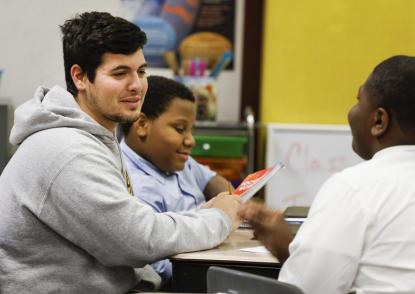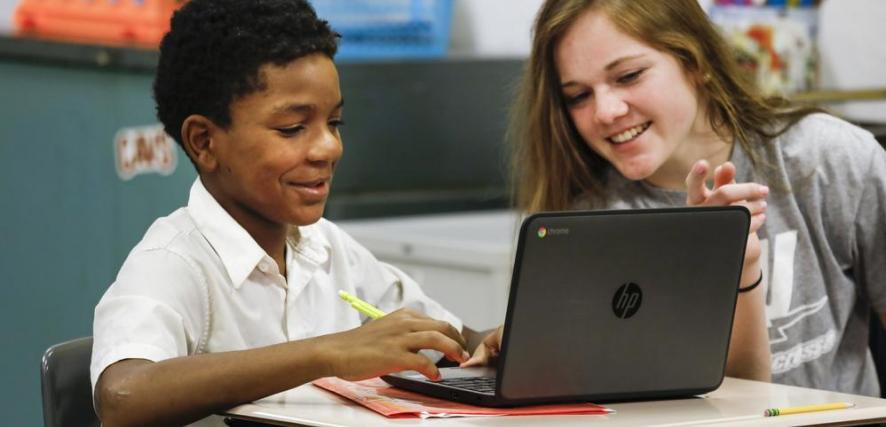
John Carroll University excels in providing hands-on, experiential learning opportunities that take students outside the classroom. JCU offers several degree paths applying this strategy to position graduates as leaders in classrooms, schools, and districts around Ohio. John Carroll’s Department of Education has three undergraduate programs leading to teacher licensure. By incorporating Jesuit values in these programs, JCU empowers educators with a deep understanding of cura peronalis, a Latin phrase meaning “care for the whole person.” This fundamental Jesuit belief aids JCU education graduates to serve students in all facets of their growth; intellectual, moral, and social. Ultimately, a John Carroll education degree provides prospective teachers the tools to make a difference in the classroom, community, and beyond.
John Carroll’s education programs epitomize the university's efforts toward experiential learning. From the first course until graduation, students spend hundreds of hours in local classrooms preparing to lead future generations of students. This portion of the curriculum is an invaluable resource for prospective educators. “The field portion of the curriculum is essential to living out our commitment to a faith that does justice,” says Dr. Dan Reynolds, assistant professor in the JCU Department of Education. “Every day, JCU teacher candidates encounter students from all backgrounds and walks of life, and they have to design instruction to meet them where they are.”
